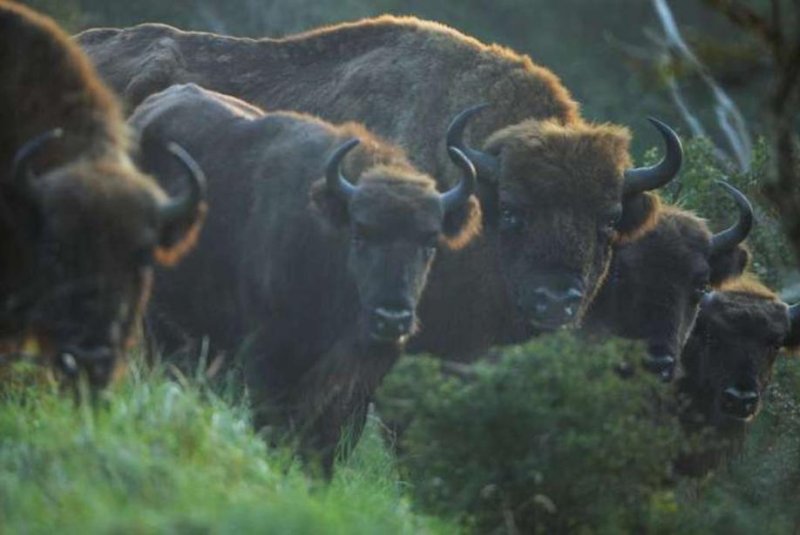Over the last decade, bison have been reintroduced in European countries, including inside Kennemerduinen National Park in the Netherlands. Photo by Staffan Widstrand/Rewilding Europe
Oct. 24 (UPI) -- When biodiversity declines, and animals and plants disappear from a piece of land, a variety of ecological services and benefits are lost. Those benefits, however, can be rediscovered through "rewilding."
The latest issue of the journal Philosophical Interactions of the Royal Society B details the many -- previously unappreciated -- ecological benefits that are lost when plant and animal species disappear from the environment. Several studies published in the new issue showcase the positive impacts of rewilding efforts.
"Scientific data on the effects of explicit rewilding efforts have until now remained scarce," Liesbeth Bakker, researcher at the Netherlands Institute of Ecology, said in a news release.
The reintroduction of wolves into Yellowstone National Park is one of the most famous rewilding projects. The predators helped stabilize deer and elk populations, as well as altered the ungulates grazing behavior. Because deer and elk grazed for shorter amounts of time, stream side vegetation growth increased, reducing erosion. The streams and rivers returned to more natural pooling patterns, benefitting trout and other species.
The studies in the latest issue detail similar success stories, as well as habitats that stand to benefit from rewilding.
One paper suggests the presence of large herbivores in the Arctic, including reindeer and muskoxen, can help moderate warming trends. Another details the positive influence of beavers on wetland plant diversity. Research published in the new journal suggests large herbivores can prevent extreme wildfires by thinning vegetation.
"These studies demonstrate that trophic rewilding is a promising tool to mitigate negative impacts of global change on ecosystems and their functioning," said Bakker. "But it's also clear that implementing trophic rewilding alone will not solve these problems."
According to Bakker and her research partners, rewilding efforts must be accompanied by other types of conservation projects, as well as stronger efforts to curb greenhouse gas emissions.
Rewilding efforts are more likely to succeed, scientists argue, if they have sufficient scale.
"In human-dominated, fragmented landscapes, a certain level of management of ecosystems may still be needed," Bakker said.
Still, with proper management, smaller pockets of habitat can be allowed to become more natural over time, suggesting rewilding efforts can happen in places where large expanses of habitat are hard to come by.
Of course, humans can rewild species that are extinct. Previous research has shown the biodiversity losses caused by humans will require several billion years of evolution for proper restoration. But the latest findings suggest rewilding can promote healthier and more stable ecosystems.
To better understand how and when to rewild, researchers argue more scientific investigation is needed.
"There is an urgent need for science to move on from ideological debates to actual data on the impacts of rewilding," researchers wrote.















